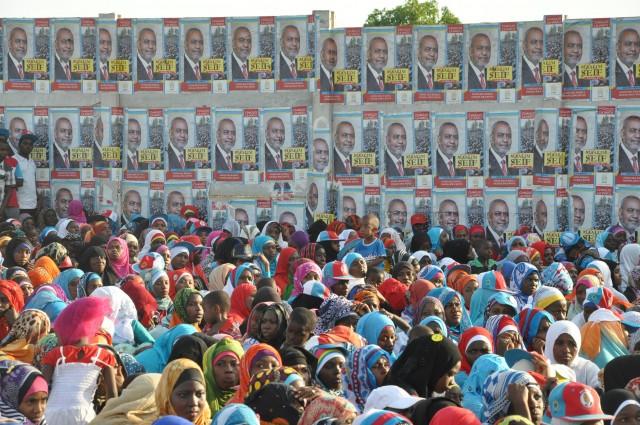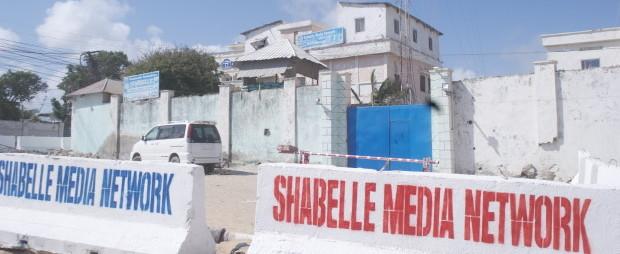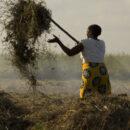Zanzibar: election re-run raises likelihood of confrontation

With the political crisis still unresolved and tensions rising, Zanzibar is at risk of returning to the instability seen in the early 2000s.
After a long period of negotiations, it was announced on Friday that Zanzibar will hold a re-run of elections on 20 March. The news was accompanied by a deployment of security forces in the semi-autonomous archipelago and was greeted with anger by many on the streets of the capital.
“We have been cheated,” exclaimed one resident of Stone Town. “They will be here up to the 20 March, there is no freedom in Zanzibar,” said another.
The decision comes three months after elections in October 2015 were controversially annulled by the Zanzibar Electoral Commission chairman, Jecha Salim Jecha, who claimed that there had been irregularities. The Tanzanian army had a strong presence in Stone Town and had surrounded the Commission.
The opposition Civic United Front (CUF) – whose leader Seif Sharif Hamad told reporters he had seen the estimations which showed the results strongly favoured him – denounced the annulment. Many citizens claimed the move was a political ruse by the ruling Chama Cha Mapinduzi (CCM) to maintain power. Meanwhile, international observers concurred that the election had been credible and urged the commission to complete the count and declare the results.
Since then, Zanzibar has been locked in a political and constitutional crisis. The opposition has opted for dialogue over demonstrations, but with CCM politicians reportedly undermining the talks by claiming a rerun of elections was being prepared, frustrations and feelings of injustice have grown.
The recent announcement of election re-runs could lead popular discontent to escalate even further. Moreover, with a march set to take place tomorrow (27 January) to commemorate the deaths of at least 35 demonstrators in 2001 (with the CUF’s estimates of the death toll closer to 65) – an event that followed allegedly rigged elections in 2000 – confrontation is possible. The organisers have called for a peaceful procession along a route going from Malindi to Maisara, but with the police having banned the march and the presence of security forces high, there is high potential for violence.
A dubious dialogue
It was arguably the events of 2000-2001 – in which protests were supressed by force – that has led CUF’s Hamad to participate in dialogue rather than call for popular demonstrations over the past few months. He has met with the incumbent and CCM candidate, Ali Mohamed Shein, on several occasions since November, but in the absence of any external mediator, many observers have questioned the fairness of these negotiations. It is telling that these talks are typically referred to as a “committee” that is “chaired” by Shein in the Tanzanian press.
At the same time, CCM has been accused of clamping down on dissent around Zanzibar. For instance, a number of media organisations have allegedly been targeted with Radio Swahiba FM forced to close, copies of Mwana Halisi newspaper confiscated, Hits FM radio studio burnt down, and more recently the Mawio paper being banned. Some local opposition members have also claimed that they have been threatened, with the popular ‘Commonwealth’ baraza in Michenzani area of Stone Town where opposition residents meet regularly being razed in mid-December.
In the face of this crisis, the US-based Millennium Challenge Corporation has suspended a grant worth $472 million to the Tanzanian government. Zanzibari diaspora have organised demonstrations in the likes of Canada, the UK, Sweden, Norway and Somalia. And at a press conference in Dar es Salaam on 11 January, Hamad expressed his disappointment about the talks and called for the intervention of Tanzania’s new president, John Pombe Magufuli.
Hamad’s call, however, fell on deaf ears, and the very next day, CCM’s Shein announced unilaterally that the elections would be re-run.
This declaration happened to fall on the anniversary of Zanzibar’s 1964 Revolution in which the new independent government led by the Sultan of Zanzibar was overthrown by insurgents of mostly African origin. This event, which was followed by reprisal killings of thousands of Arabs, Comorians and Asians, has been used ever since to construct political narratives based on racial divisions between Arabs and black Africans. In fact, at the celebrations to commemorate the anniversary, one young CCM supporter was seen holding a placard reading “Zanzibar is a country of black people”. News of this incident angered citizens across Tanzania; the CCM called the act “shameful” and vowed to conduct an investigation.
The 1964 revolution also marked the start of Zanzibar’s union with mainland Tanganyika, an issue that is still subject to debate today. Some opposition figures want much greater autonomy for the region. Meanwhile, during the CCM campaign, the spectre of the Sultanate returning to Zanzibar has been invoked, albeit as an implausible scare story to mobilise xenophobic sentiments.
Despite the fact that Zanzibar’s citizenry has been shaped by countless multi-cultural marriages and the intermingling of people from myriad origins, intolerant racialised rhetoric is still instrumentalised and finds support in some quarters.
Back to 2001?
Since the announcement on Friday that Zanzibar’s new elections will be held on 20 March, however, it is a different anniversary that has been more readily cited – that of the post-election violence in 2001. Lawyers and the opposition are currently working to prevent the re-run of elections, and the march scheduled for 27 January is intended to be peaceful. Nevertheless, tensions are running high and the kind of confrontation seen in the early 2000s may be possible once again, especially with some CCM youth elements reportedly using divisive language.
The current crisis in Zanzibar could undermine a long-running reconciliation process that allowed a Government of National Unity. With President Magufuli still keeping silent, a strong security presence on the streets, and a sense that the elections were stolen from the CUF rising, Zanzibar’s peace could be at risk.
This crisis is a Tanzanian issue more broadly too. Last November, the new parliament was inaugurated in absence of the figure many see as the legitimately-elected president of Zanzibar. This unprecedented incident was opposed by the parliamentarians from the opposition UKAWA coalition who claimed Hamad should be present and withdrew from parliament. The ongoing crisis also illustrates Tanzania’s ruling elites’ rootedness to a party-state culture and reluctance to allow for a true multi-party democracy. If unresolved, the Republic as a whole could face greater uncertainty, instability and disunity.
Maïlys Chauvin is a geographer of Les Afriques dans le Monde, Political Sciences Institute of Bordeaux, France.
[Correction (28/1/16): The article originally stated that the new parliament was inaugurated “in the absence of representatives of Zanzibar”. Zanzibar MPs were in fact present, but the figures many see as the legitimately and newly-elected president and vice-president were not. This has now been corrected.]








It very difficult situation to Zanzibar democracy no longer practices power mongerism taking place
”Last November, the new parliament was inaugurated in absence of the representatives of Zanzibar.”
This is not true. Ali Saleh was there and he hails from Zanzibar. Write the truth.
Thanks for your comment. This has been corrected. Please see correction note.